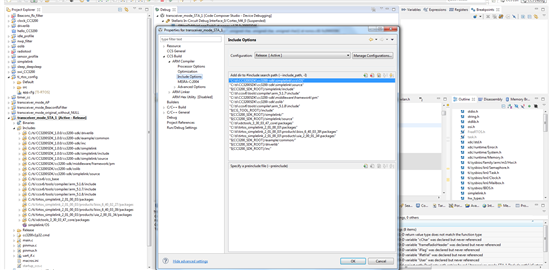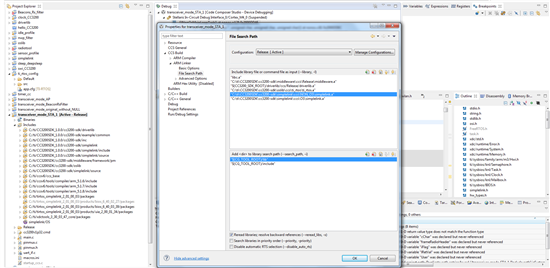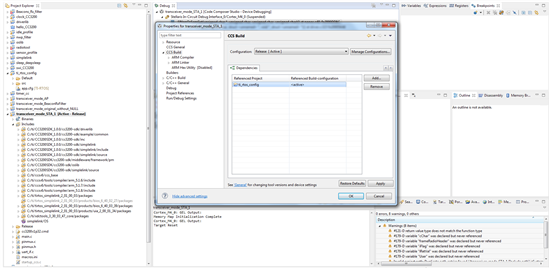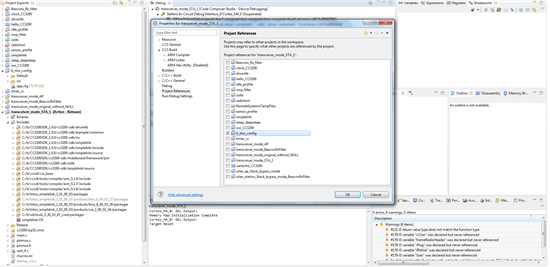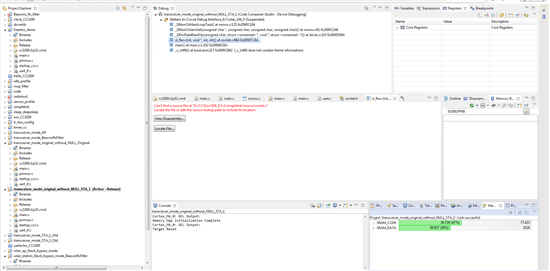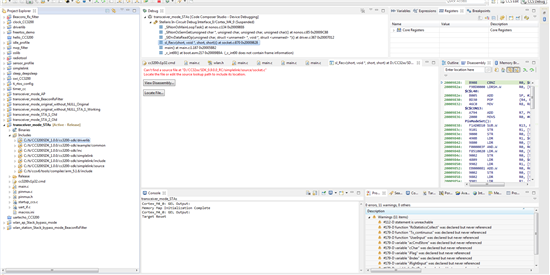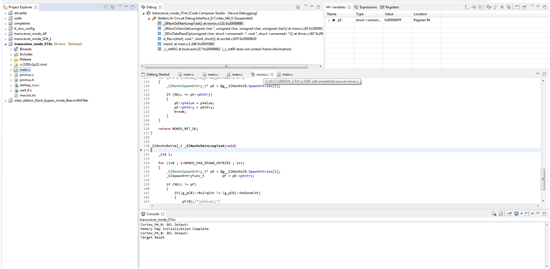Hi,
I am modifying the transceiver_mode example. I have 2 tasks with different priority. The task with priority 2 initializes the board and configures it, this task ends properly and there are no loops in it. The task with priority 1 has an infinite loop where I:
* Read frames in the transceiver mode
* if (memcmp(&(buffer[8]),RawData_Ping,122)==0)
- A frame is sent in the transceiver mode
The program runs as expected, but after an arbitrary amount of time it stops, without any error or message either in the console or the UART. It seems that there are no problems with memory neither. When I pause the code, it directs me to different parts in the file "nonos.c".
What could be causing this behavior? a power management policy? I need the system to be working indefinitely, until I manually reset it. Thanks!


